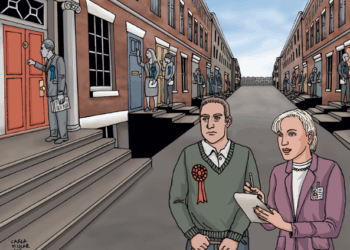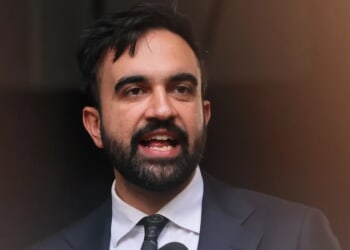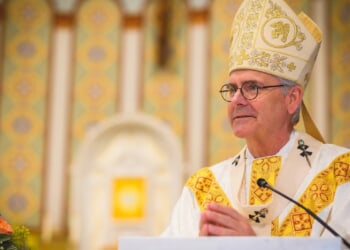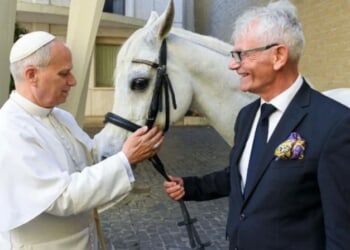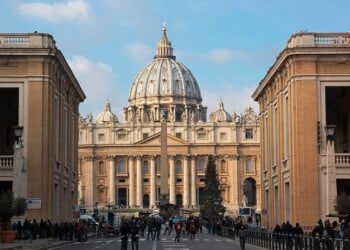Nineteen years of my career was spent working for the BBC.
In two radio stations, local TV, and twelve years as a political reporter for the now defunct Daily Politics programme there was not a single week when a question of maintaining impartiality or a question of bias did not come up. This is not an indication of endemic bias, but the active checks and balances of maintaining impartiality.
On one level the process was often farcical.
There’d be days when a piece went out, with the ‘both sides of the argument’ laid out, and within seconds someone was telling us we were ‘Tory mouthpieces, directly plugged into CCHQ taking their orders’ and someone else saying ‘if we sucked up to Labour any harder, we’d be revealing how much we were in the pay of the Labour party’. It would be swiftly followed with ‘why is there no Lib Dem on today?’ and the perennial ‘why is Farage on my TV again?’
Lot’s to unpack there.
Nigel was on a lot because when UKIP were making progress and inroads the only real spokesperson was Nigel Farage. In someways that’s still true. And it is perfectly legitimate, not bias, for the BBC to interview the party currently polling as Reform UK are. It’d be very odd not to.
The Lib Dems suffered because ‘balance’ (over a week, not a programme or an item) was measured by polling and proportion of representation. These were days when 72 seats was a wild and distant dream. Now they have more cause to bleat.
With the Conservatives and Labour the internal BBC argument used to run that if both the ‘two main parties’ – and boy has that world changed – were accusing us of bias simultaneously then we were probably getting things ‘about right.’
This is a bogus argument by the way, because it shields the scenario where the BBC is being biased against both, which is still by the way, bias. However its more invidious symptom was it built an internal complacency that accusations of bias, said more about the accuser than the BBC.
For an insight, day to day in editorial meetings, particularly in No.4 Milbank – the offices near Parliament where Sky, BBC, ITV, LBC and a host of other outlets have studios – there would be producers whose backgrounds were from a variety of parties or none.I still believe, and back then my Tory credentials were not fully formed, that the BBC’s issue has been an unconscious liberal metropolitan view that; just slightly left of centre is where the natural order of things lies, and that is the prism that should be applied. It is also similar to Labours conviction that because they are ‘good guys’ they aren’t capable of being biased, because good guys don’t do that. It’s a very bad habit.The argument my editor would always start with, is have we started looking at a story on the basis of some established thinking, that itself may be biased. A good example is when in 2011 Caroline Spelman, Environment Secretary in the Coalition government announced a sell off of 258,000 hectares of state-owned woodland. It proved highly controversial, and the plans were dropped and she had to apologise.
Discussions on coverage had started with the basic foundation that this was a bad idea. It should not have done.
Our editor asked us to consider whether we were making an assumption that private owned forestry was intrinsically worse, less well maintained and restrictive in rambler access, and sent me off to find one and ask those questions. Of course as I say the plan to sell off burned down quicker than a fir tree in a furnace, but it was important that the assumption be tested, if we were to be a truly impartial outlet.
If that example seems unduly favourable to the Conservatives – and Lib Dems given it was a coalition – then in 2007 when the received wisdom was that Gordon Brown had ‘bottled an early election’ the question was asked in a meeting, if we were ignoring the reasons why Brown might have been absolutely right to say no. It wasn’t that we promoted that view but that nobody had bothered to ask the question.
My editor was the now Sir Robbie Gibb, former Director of Communications in Downing Street (an appointment that surprised even us at the time) and now on the BBC Board. He is roundly accused by the left, and some people he used to work with of these days being the architect of overall BBC right of centre bias. They never mention BBC senior board members who’ve been close to Labour. No-one pointing at Gibb talks about James Purnell. It’s a claim, without any pro Conservative bias or loyalty to my former boss, I simply don’t accept.
As a media Spad in the last Government, I didn’t detect a pro Conservative bias at the BBC at all, nor, even including the newspapers, did I think they were over ‘anti’. People who I would get very frustrated with at the time have been as robust with Labour in the past year and I suspect would be with Reform were they to govern.
A lot of accusations of bias against the BBC are frivolous and flimsy. However and here’s the kicker, they can be horribly biased. What is worse, they don’t really see it themselves, so used are they to defending themselves against trivial examples they can’t – if you’ll forgive the pun – see the wood for the trees.
In amongst those that scream the BBC is far too pro-Israel and thus ‘complicit in genocide’ there are many ( I can’t tell you the words the President of Israel used on the subject, but they could never be broadcast on the BBC!) who have, with justification, seen the BBC fall badly over its willingness to accept Hamas propaganda as verifiable fact.
That documentary from a teenage Palestinian, of life in a war that unquestionably has seen horrific numbers of Palestinians young and old, male and female killed, or maimed was presented by the son of a Hamas official, and the BBC didn’t check, or do anything about it.
When a clip of Donald Trump on that Jan 6th was revealed by the Telegraph to have been put together using two phrases fifty minutes apart to make it sound very different, it really really doesn’t matter if you believe he was trying to urge an insurrection or not, that is biased and misleading practice.
One of the left’s outriders in the media, you know the type – presents as a balanced reporter but is a transparent activist – claimed this was ridiculous, since political journalists edit disparate clips of speeches all the time. The point they missed was that whilst that’s true, every person I have ever worked with at the BBC, including myself, makes it abundantly clear that is what had been done, not forged the two together to give a very different impression.
To know the discussions in that edit suite would be really interesting, but I think the final decision would have either been ‘it’s fine we’ll get away with it’ or possibly worse ‘this is not unusual and there is nothing wrong with this’.
So now the Director General has resigned.
Tim Davie is an oddity in BBC DG history in that he’s the only one who got the job, because he’d actually got experience of doing the job when in 2012, he stood in after George Entwistle became the shortest BBC DG in history over the Newsnight child abuse broadcast. He had admitted Newsnight’s report, which led to Thatcher-era Tory Lord McAlpine being wrongly implicated, should not have been aired, having previously admitted he hadn’t watched it.
Davie, and CEO of BBC News Deborah Turness have resigned. When the White House calls the BBC out for fake news – possibly an irony in itself but let’s leave that – there’s nowhere to hide, nor pooh-poohing the accusations as just the work of the Telegraph who have led the charge on this.
The BBC is in a very precarious position now. Key vacancies, that many of those best suited to fill them may be put off by ‘poison chalice’ syndrome.
And necessary or noble, these two falling on their swords doesn’t actually hold those who made the programmes, or pushed an agenda – as is the accusation on trans coverage – to account. Leaving them in place.
It doesn’t help when a presenter is simultaneously ticked off for an eyeroll. A ticking off worthy of an eyeroll.
It was in ‘W1A’ the BBC’s own comedy about itself – the Beeb loves a bit of satirical self-flagellation, but I think it thinks that gives it cover – that one of the overtly useless and backside-covering senior execs had the title “Head of Better”
Well whoever replaces Davie, I don’t want them to manage the destruction of the BBC I want them to lead the charge to be better, and truly impartial, because they aren’t at the moment.
…and hanging above all of this is the issue of the licence fee.
It’s up for discussion for renewal in 2027. ‘Charter renewal’ they call it. Well here’s last the thing. The BBC will always argue vociferously for the licence fee to stay. But as I’ve pointed out to a number of politicians:
The very moment they think a Government really will remove it, out will come years of planning and thoughts on how to survive as a streaming service or any other model.
They know it is coming eventually; they just play poker to see who is serious about it.

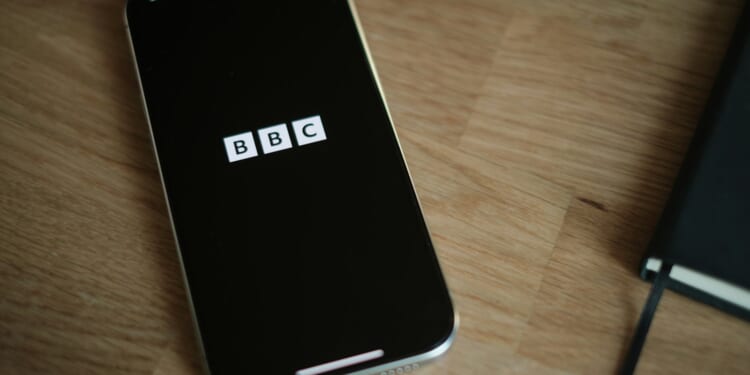





![Donald Trump Slams Chicago Leaders After Train Attack Leaves Woman Critically Burned [WATCH]](https://www.right2024.com/wp-content/uploads/2025/11/Trump-Torches-Powell-at-Investment-Forum-Presses-Scott-Bessent-to-350x250.jpg)


